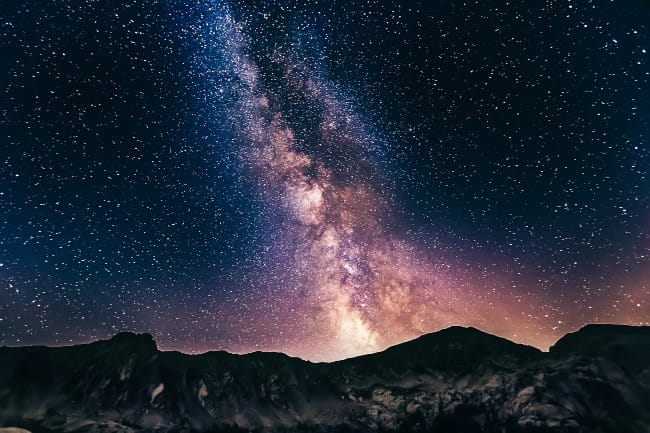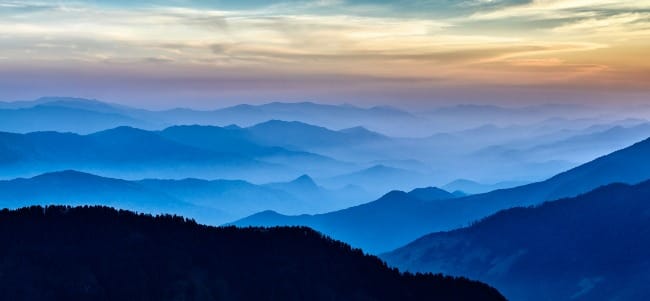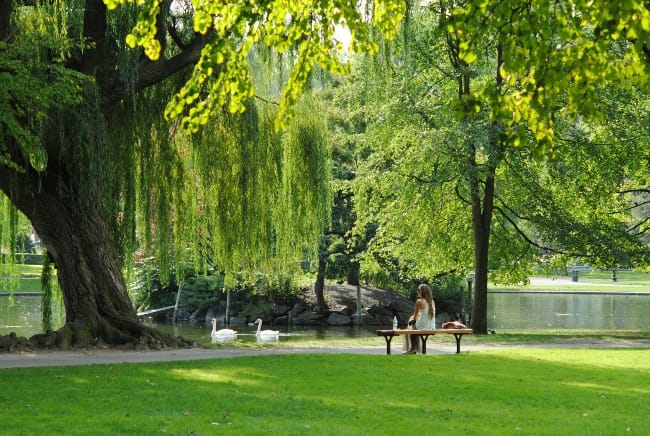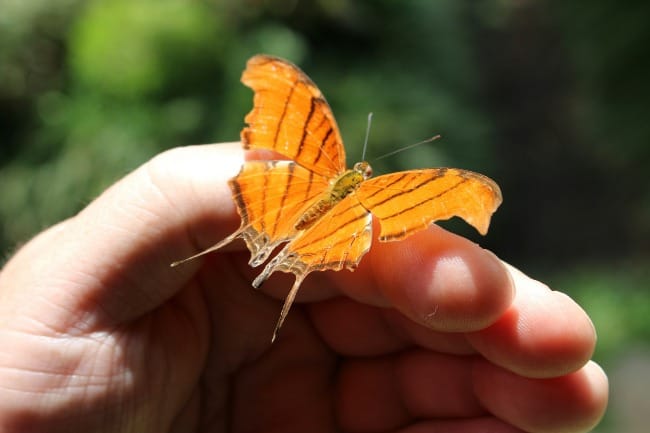There is a lively song, based on Isaiah 55:12, which repeats a phrase - "all the trees of the field shall clap their hands" - many times over. I have sung it enough to enjoy imagining trees clapping their hands. It is impossible, of course, because trees do not have hands. It it easy to dismiss the phrase as an example of poetic license, an anthropomorphization of nature that makes for a good line but not much more. But what if we shed our modern biases for a minute and entertained the possibility that there is more to this type of common biblical metaphor than we have imagined? By reading a similar text, Psalm 148, through eco-theological lenses, we can begin to see (and hear), hiding in plain sight, the symphony of praise that echoes through every nook and cranny of creation and calls us to join in.

The Symphony of Creation
Psalm 148 is a carefully crafted poem that draws on Genesis 1 to highlight the centrality of praise in creation. It begins with praise that comes from above the earth.
Praise the Lord. Praise the Lord from the heavens;
praise him in the heights above.
Praise him, all his angels;
praise him, all his heavenly hosts.
Praise him, sun and moon;
praise him, all you shining stars.
Praise him, you highest heavens
and you waters above the skies. Let them praise the name of the Lord,
for at his command they were created,
and he established them for ever and ever—
he issued a decree that will never pass away.
It may seem that the poet is commanding these creatures to praise, but that does not make sense - angels do not need human invitations to praise God, for instance. I think it is better to understand the poet as acknowledging and honoring the praise that is already ringing "from the heavens." It is like cheering on a gifted athlete by yelling, "Go! Go! Go!" Such cheering is primarily for the benefit of fans, who are drawn into the game by the excellence of what they observe. That is the goal of the poet - to draw us humans, who are the only creatures hesitant or resistant to praising God, into the symphony of creation's praise.

Down to Earth
Psalm 148 leaves the heavens and comes closer to us:
Praise the Lord from the earth,
you great sea creatures and all ocean depths,
lightning and hail, snow and clouds,
stormy winds that do his bidding,
you mountains and all hills,
fruit trees and all cedars,
wild animals and all cattle,
small creatures and flying birds,
kings of the earth and all nations,
you princes and all rulers on earth,
young men and women,
old men and children. Let them praise the name of the Lord,
for his name alone is exalted;
his splendor is above the earth and the heavens.
And he has raised up for his people a horn,
the praise of all his faithful servants,
of Israel, the people close to his heart. Praise the Lord.
Here we have the praise of terrestrial creation mapped out for us. The three distinct earth forms - ocean, sky, and land - are included, with representative creatures from each habitat. Only then are humans invited to join in. We might take this as a sign that humans are the most important creatures - save the best for last! But I think it is better to see the poem inviting us to see the whole picture of praise so that we understand that we are part of something much bigger than ourselves. That is probably why the writer waits to invite praise from "his faithful servants" - the people of Israel - to the very end of the poem. They are, indeed, "close to his heart," but that place of prominence and privilege must be understood from within the larger framework of creation. And by pointing out and celebrating creation's praise as a whole, the poet is modeling a uniquely human gift that we bring to the symphony.
Here are three ways we can develop and practice this gift.

#1) Look and Listen for Praise
Psalm 148 shows us that the elements and creatures of creation praise God simply by being themselves. The sun shines; the wind blows; the trees blossom, and the animals prowl, swim, and fly. We humans rise, work, play, and rest. Can we train ourselves to see these rhythms of creation as a symphony that plays out each day? Can we pause to look at and listen to the flora and fauna in our neighborhoods, the hustle and flow of human activity, the give and take of family life, and the rhythms of our own life? All of life is an opportunity to see the Creator's hand at work, no matter how muted and often discordant it may be.
The apostle Paul concludes his letter to the Philippians with this exhortation:
Finally, beloved, whatever is true, whatever is honorable, whatever is just, whatever is pure, whatever is pleasing, whatever is commendable, if there is any excellence and if there is anything worthy of praise, think about these things.
There is so much that is "worthy of praise" if we have the eyes to see and ears to hear. And the more we see and hear, the more we can share.

#2) Point praise out to others.
When we help others see, celebrate, and join creation's praise, we become like the poet behind Psalm 148. We do not have to write a poem, sing a song, or paint a picture. It is a simple as inviting them to see what you see and hear what you hear. It requires the recovery of childlike wonder, which for many of us has been muted by our separation from nature and the modern reduction of the non-human world to "natural resources."
What brings you joy and delight, or fills you with awe and wonder? Who can you invite to share it?

#3) Protect the symphony.
If creation's praise is like a symphony, our collective way of life is silencing many of the voices. We are in the middle of a sixth mass extinction, and this one is caused by human activity. By taking action to preserve biodiversity, we help creation's praise. We can pressure our politicians to extend legal protections where they are needed; we can reduce our use of chemicals that harm other creatures; we can refuse to kill creatures unnecessarily; we can create welcoming habitats in our neighborhoods. When we do so, we "let them praise the name of the Lord." And we add our voice as well.
With you on the Way,
James
If you have additional observations, ideas or questions about this post, feel free to add a comment or email me directly at james.amadon@circlewood.online.